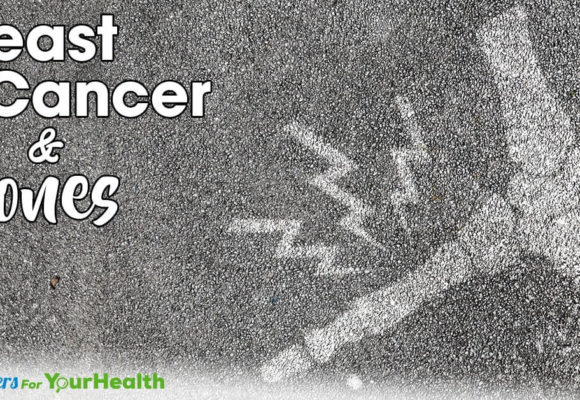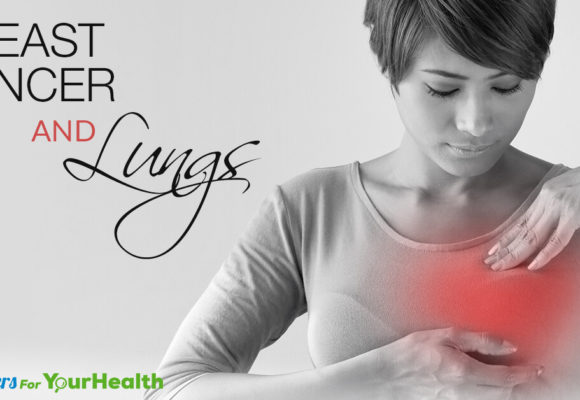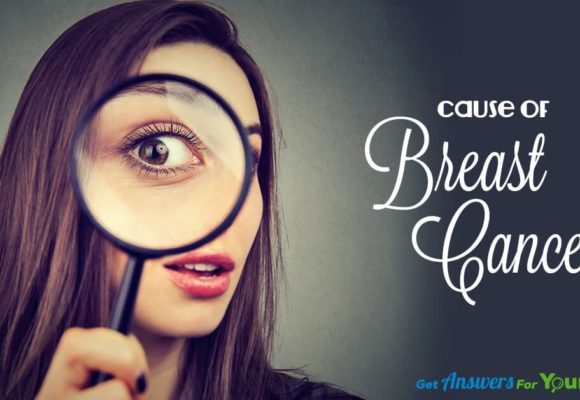1) Grab a FREE copy (Value $14.95) of one of my books Thyroid Symptom Overload
Just pay shipping $7.95 for any US orders. Or, if you want to pay full price plus shipping, order from Amazon :)
2) Take our Thyroid Quiz today and find out what "Thyroid Type" you have
This quiz will help you quickly discover where your symptoms are stemming from.
3) Join Our Thyroid Advocate Membership Site - Natural Thyroid Academy
FREE for a limited time. No credit card required.
4) Work with me and my team privately
Schedule your FREE 15 minute phone consultation and we can find out the best way to help you specifically.
The incidence of breast cancer is on such a rise that 1 out of every 8 women in US will suffer from breast cancer in their lifetime. It can be a nightmare waking up with a lump in one of your breasts. To try and prevent such a deadly disease, there is much you can do!
Here is what breast cancer actually is, its risk factors, and all the preventative measures you can take to reduce the chances of having breast cancer.
What is Breast Cancer?
After skin cancer, breast cancer is the second main cause of deaths from cancer and it is the most common invasive form of cancer, mostly found in women (can affect men as well).
Generally, after reaching puberty, the women’s breast develops in order to produce milk for breast feeding. The developed breast consists of a lot of tiny glands, fat, connective tissues and thousands of lobules. The milk from the glands is carried to the nipple by tiny ducts or tubes. At times, these body cells start multiplying excessively. This uncontrollable growth of cells causes breast cancer.
The two types of breast cancer are Ductal Carcinoma (the most common type and begins in the duct where milk is produced) and Lobular Carcinoma (begins in the lobules).
The cancer can be invasive or non-invasive. Invasive cancer is the one in which cells start invading the nearby tissue by breaking out of the duct or the lobules. This increases the chance of cancer spreading to other body parts.
Whereas, non-invasive breast cancer is when the cancerous cells are not breaking out and staying inside the origin (duct or lobule). However, there are chances of these cells developing into invasive cancer.
Breast Cancer Statistics.
According to the American Cancer Society’s statistics, about 1 out of 8 U.S women (i.e. 12% approx) are at a risk of developing invasive breast cancer over the course of her lifetime.
Around 252,710 new diagnosis of breast cancer are expected to be reported during the year 2017, and around 40,610 women are expected to die due to this disease.
However, the survival rates have dramatically improved since 1989, due to the advances in screening technology, treatment methods and awareness among people. One of the major preventative measures is guidance and awareness among people.
What Should You Know To Prevent Breast Cancer?
Scientists, in order to prevent the disease from starting, look at the risk and the protective factors causing breast cancer. Risk factors are all those factors which increase the chances of developing the cancer. Whereas, the protective factors (as the name suggests) are all those factors that contribute in decreasing the chances of developing the cancer.
Stated below are some risk factors that make the chances of breast cancer development more likely. However, the exact cause still remains unidentified and unclear.
- Being a Woman: Being a woman itself is one of the biggest risk factors of breast cancer.
- Age: The older you get, the higher are the chances.
- Genetics: The most unavoidable factor. The risk is higher if anyone in your close relatives has had it.
- Dense breast tissue: The cancer is more likely to develop in the breasts that are dense in volume.
- Body weight: After menopause, the women who are obese or heavier, tend to be more prone.
- Radiation Exposure: Going through radiation exposure for anything increases the risks of developing breast cancer.
- Alcohol Consumption: According to the studies, women consuming more than 3 drinks a day are at a 1.5 times higher risk of breast cancer.
- Hormone Treatment: HRT (hormone replacement therapy) or birth control pills increase the levels of estrogen, thus causing the chances of breast cancer to increase.
- Occupational Hazards: According to researchers, another risk factor is the body’s exposure to certain carcinogens and endocrine disruptors which are usually common in the workplace.
- Estrogen exposure and breast feeding: Higher estrogen levels for a longer period of time (for e.g. early menopause) increases the risk of developing breast cancer as well.
How To Prevent Breast Cancer?
After knowing all about breast cancer, you must be wondering if there are ways through which you can prevent the development of breast cancer or at least reduce the likeliness of suffering from it. Well yes, scientists after a lot of research and studies have come up of some preventative measures to avoid the risk factors that may lead to breast cancer.
However, certain risk factors such as heredity or genetics are unavoidable and you cannot do anything about it. According to a research, fewer than 15% of all the breast cancer women are reported to have a family member or relative diagnosed with it. This means that around 85% of all the cases have been caused by avoidable risk factors such as smoking, obesity, stress or eating cancer causing foods. According to research, most of the cases could have been avoided if the preventative measures were taken beforehand.
How Age Affects You?
We all know that with age, the bodies also change. The body of a 30 year old might react differently to a factor or treatment than the body of a 60 year old. Every person is unique and that changes as you age.
In addition to avoiding all the risk factors mentioned above, below are the 3 most effective measures one can follow to avoid the risk of developing breast cancer, according to each of the milestone decades.
Breast Cancer Prevention Tips For Your 30’s:
- Getting into healthy habits:
A person in his/her teens or 20’s is the most prone to pick up unhealthy or bad habits such as smoking, drinking or eating junk food. Now (in your 30’s) is the best time to start changing your unhealthy habits.
Cutting back on sugar, eating more green veggies, organic proteins, and healthy fats, lowering your consumption of alcohol, drinking the right amount of pure water, getting into a self-nurturing routine that includes stress-reduction techniques such as meditation and healthy forms of exercise, are some of the things you should start following strictly once you cross your 20’s.
- Reduce the toxins around you:
When surrounded by toxins, one can help by choosing organic when it comes to food and beauty products. Regular detoxification of your body through short term fasts, enemas or professional detox regimens should be included in the routine of people aged 30 and above.
- Using oral contraceptives:
The World Health Organization actually considers these very convenient birth control pills as Category 1 “Known and Probable carcinogen” alongside tobacco and diesel. There is a 50% more risk of developing breast cancer in those who use these oral contraception (American Association for Cancer, 2014).
Breast Cancer Prevention Tips For Your 40’s and 50’s:
A woman generally goes through some major physical, mental and emotional changes in her body during the age of 40-59.
- Getting hormone levels checked:
Menopause and pre-menopause brings along other symptoms such as insomnia, fibroid tumors, thyroid imbalances and mood swings. This means that because of these factors, our bodies need help in getting back to the hormonal balance. We can do this by getting our hormone, fluoride and bromine levels checked and start a supplement plan that works for us, thus reducing the chances of getting breast cancer.
- Reduce stress:
One of the major risk factors of breast cancer is chronic stress, which can lead to the chronic depression. Stress and depression causes dysfunction of the immune system. During this age, it is extremely important for self-care practices such as meditation and yoga, which will help your body to get into a more peaceful state.
- Practicing early prevention:
Getting mammography done and performing regular self-tests such as checking for lumps in your breasts, monitoring the temperature etc. can help in detecting the cancer in very early and curable stages.
Breast Cancer Prevention Tips for your 60’s and beyond:
- Staying active:
Movement is a must do if one wants to protect him/herself from getting breast cancer. Being a couch potato after retirement will only lead to having an increased risk of obesity. So, stay on the go.
- Calcium supplementation:
According to a study, increased bone density caused by intake of calcium supplements can result in a 2 fold increase in breast cancer risk. So, you might need to re think about your supplement regimen.
- Emotional health:
After 60 years of age, it gets important to reflect on your life and improve the quality of your living. 85% of all the diseases have an emotional element linked to them, according to researches. Try staying social and get in touch with others. Do the things you’ve always wanted to do for a happy healthy heart and body.
Outlook
Thanks to cutting edge research about epigenetics and nutrigenomics, we now know that there is a lot we can do to prevent our bodies from developing disease and put the destiny of lives in our hands. It comes down to personal responsibility. Whatever the age, we should start loving and looking after ourselves, to have a balanced, vibrant and a health filled life.
References
https://www.medicalnewstoday.com/articles/37136.php
http://www.mayoclinic.org/healthy-lifestyle/womens-health/in-depth/breast-cancer-prevention/art-20044676?pg=1
http://www.breastcancer.org/risk/factors?gclid=EAIaIQobChMIi-fwvarZ1gIVDhMbCh3-oQYAEAAYASAAEgKcmPD_BwE
https://www.cancer.gov/types/breast/patient/breast-prevention-pdq
https://thetruthaboutcancer.com/breast-cancer-prevention-tips/
http://www.breastcancer.org/symptoms/understand_bc/statistics








